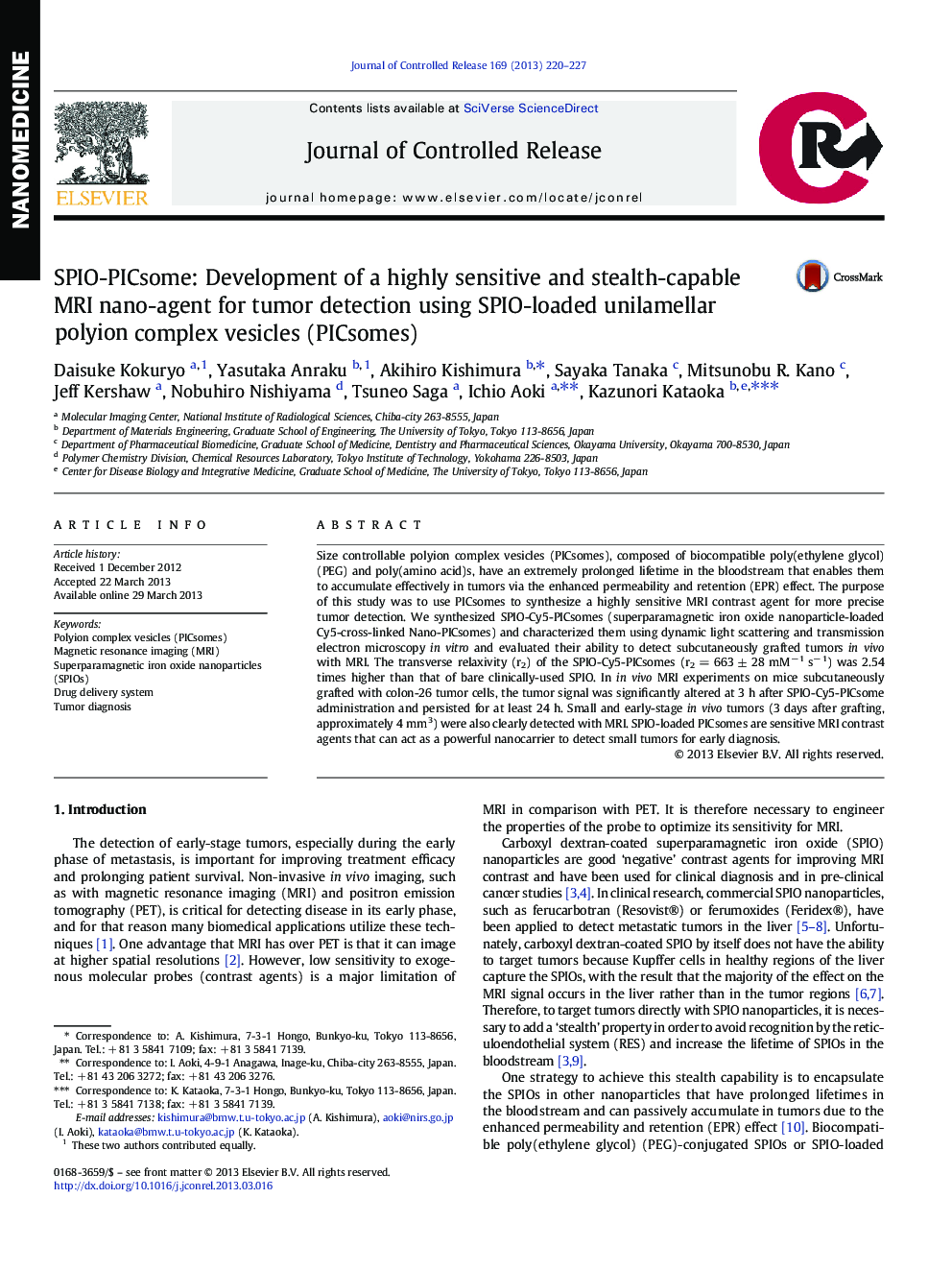| Article ID | Journal | Published Year | Pages | File Type |
|---|---|---|---|---|
| 1424160 | Journal of Controlled Release | 2013 | 8 Pages |
Size controllable polyion complex vesicles (PICsomes), composed of biocompatible poly(ethylene glycol) (PEG) and poly(amino acid)s, have an extremely prolonged lifetime in the bloodstream that enables them to accumulate effectively in tumors via the enhanced permeability and retention (EPR) effect. The purpose of this study was to use PICsomes to synthesize a highly sensitive MRI contrast agent for more precise tumor detection. We synthesized SPIO-Cy5-PICsomes (superparamagnetic iron oxide nanoparticle-loaded Cy5-cross-linked Nano-PICsomes) and characterized them using dynamic light scattering and transmission electron microscopy in vitro and evaluated their ability to detect subcutaneously grafted tumors in vivo with MRI. The transverse relaxivity (r2) of the SPIO-Cy5-PICsomes (r2 = 663 ± 28 mM− 1 s− 1) was 2.54 times higher than that of bare clinically-used SPIO. In in vivo MRI experiments on mice subcutaneously grafted with colon-26 tumor cells, the tumor signal was significantly altered at 3 h after SPIO-Cy5-PICsome administration and persisted for at least 24 h. Small and early-stage in vivo tumors (3 days after grafting, approximately 4 mm3) were also clearly detected with MRI. SPIO-loaded PICsomes are sensitive MRI contrast agents that can act as a powerful nanocarrier to detect small tumors for early diagnosis.
Graphical abstractPolyion complex vesicles, termed “PICsomes”, containing a SPIO contrast agent for MRI had a prolonged half-life in the bloodstream and high accumulation in early-stage tumors.Figure optionsDownload full-size imageDownload high-quality image (386 K)Download as PowerPoint slide
